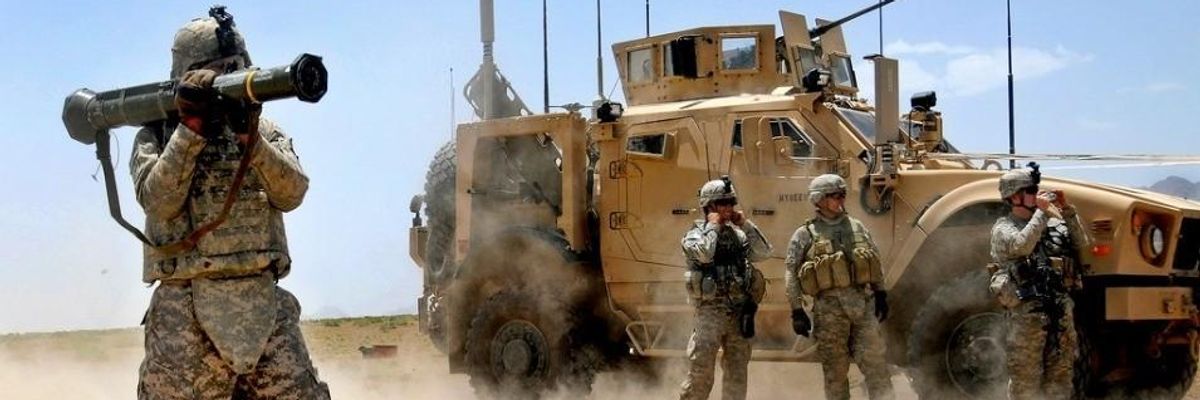Not least among the victims claimed by the coronavirus pandemic was a poetry recital that was to have occurred in March at a theater in downtown Boston.
I had been invited to read aloud a poem, and I chose "On a Soldier Fallen in the Philippines," written in 1899 by William Vaughn Moody (1869-1910). You are unlikely to have heard of the poet or his composition. Great literature, it is not. Yet its message is memorable.
The subject of Moody's poem is death, a matter today much on all our minds. It recounts the coming home of a nameless American soldier, killed in the conflict commonly but misleadingly known as the Philippine Insurrection.
In 1898, U.S. troops landed in Manila to oust the Spanish overlords who had ruled the Philippines for more than three centuries. They accomplished this mission with the dispatch that a later generation of U.S. forces demonstrated in ousting regimes in Kabul and Baghdad. Yet as was the case with the Afghanistan and Iraq wars of our own day, real victory proved elusive.
Back in Washington, President McKinley decided that having liberated the Philippines, the United States would now keep them. The entire archipelago of several thousand islands was to become an American colony.
McKinley's decision met with immediate disfavor among Filipinos. To oust the foreign occupiers, they mounted an armed resistance. A vicious conflict ensued, one that ultimately took the lives of 4,200 American soldiers and at least 200,000 Filipinos. In the end, however, the United States prevailed.
Denying Filipino independence was the cause for which the subject of Moody's poem died.
Long since forgotten by Americans, the war to pacify the Philippines generated in its day great controversy. Moody's poem is an artifact of that controversy. In it, he chastises those who perform the rituals of honoring the fallen while refusing to acknowledge the dubious nature of the cause for which they fought. "Toll! Let the great bells toll," he writes,
Till the clashing air is dim,
Did we wrong this parted soul?
We will make it up to him.
Toll! Let him never guess
What work we sent him to.
Laurel, laurel, yes.
He did what we bade him do.
Praise, and never a whispered hint
but the fight he fought was good;
In actuality, the fight was anything but good. It was ill-advised and resulted in great evil. "On a Soldier Fallen in the Philippines" expresses a demand for reckoning with that evil. Americans of Moody's generation rejected that demand, just as Americans today balk at reckoning with the consequences of our own ill-advised wars.
Yet the imperative persists. "O banners, banners here," Moody concludes,
That he doubt not nor misgive!
That he heed not from the tomb
The evil days draw near
When the nation robed in gloom
With its faithless past shall strive.
Let him never dream that his bullet's scream
went wide of its island mark,
Home to the heart of his darling land
where she stumbled and sinned in the dark.
At the end of the 19th century, the United States stumbled and sinned in the dark by waging a misbegotten campaign to advance nakedly imperial ambitions. At the beginning of the 21st century, new wars became the basis of comparable sin. The war of Moody's time and the wars of our own have almost nothing in common except this: In each instance, through their passivity disguised as patriotism, the American people became tacitly complicit in wrongdoing committed in their name.
It is no doubt too glib by half to claim that today, besieged by a virus, we are reaping the consequences caused by our refusal to reckon with past sins. Yet it is not too glib to argue that the need for such a reckoning remains. Have we wronged the departed souls of those who died -- indeed, are still dying -- in Afghanistan and Iraq? The question cries out for an answer. In our cacophonous age, it just might be that we will find that answer in poetry.



